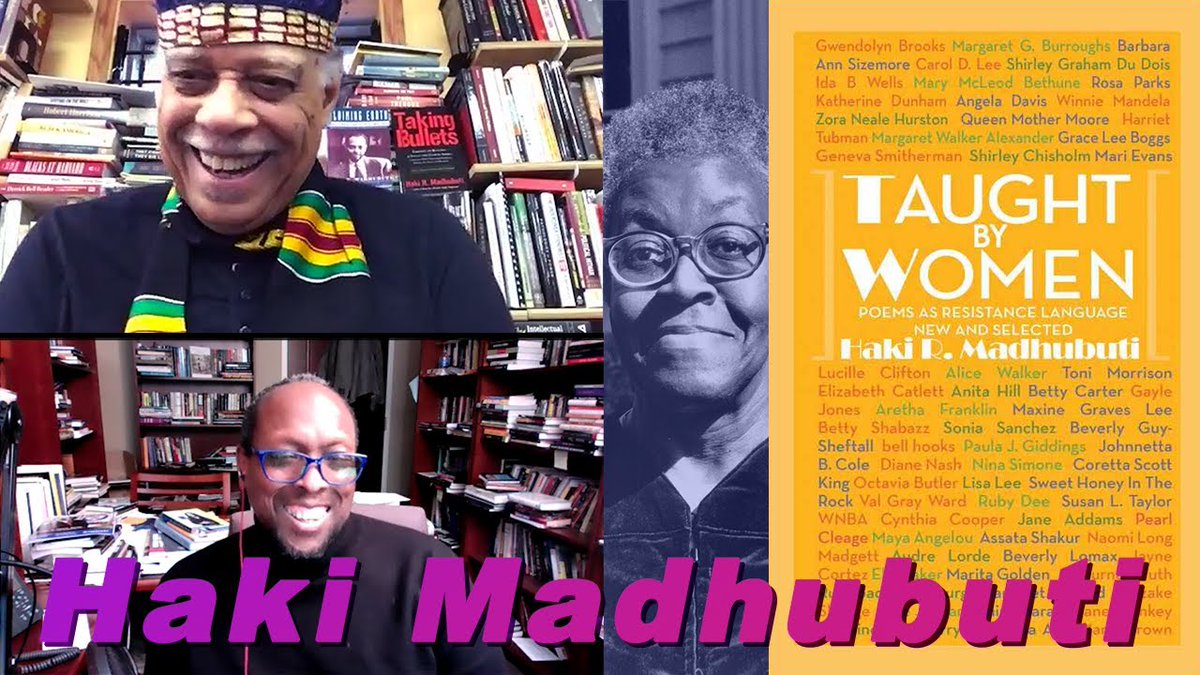 > Haki is interviewed by Mark Anthony Neal
> Haki is interviewed by Mark Anthony Neal
Back in the eighties, when I served on a National Endowment for the Arts “Literature panel” none of the other participants were aware of who Haki Madhubuti was–even though I was expected to know a wide range of majority-culture writers. Fast forward forty years later and I am afraid the situation has not changed that much.
Why are we faced with the seemingly unchanging same-o-same-o? Or as the French are wont to say: the more things change, the more they stay the same.
Although Haki has well over a couple of million books in print and has developed “the” leading, Black-owned press in 21st century America, I believe the long-term cultural ignoring of Haki as a national figure is because outside of Illinois in general and Chicago specifically, Haki has been seen as focused near exclusively on Black people in the windy city.
As we say on the street, lesser poets get more establishment play. And, it’s not just a color issue. There are poets of color, who are far better known and more-often establishment recognized, but no where near as accomplished as Haki is; especially when you consider that he has founded not only Third World Press, but also IPE (Institute for Positive Education), and two other thriving schools on the south side of Chicago, all while continuing his personal literary work.

I believe the mainstream ignoring of Haki outside of the upper midwest is really about the fact that he seldom, if ever, seeks validation from national cultural taste-makers combined with the fact that Haki continues to be what noted West African leader Thomas Sankara has called an “upright man”! Someone who stands on principle in the service of his people.
Let us love and promote this upright man. A true poet of the people: Haki Madhubuti.

Haki Madhubuti came into my consciousness as Don Lee, a magnificent revolutionary poet, and author, back in the late sixties when I as a boy became conscious in Memphis, my hometown, 1968.
Haki was also my teacher and inspiration in the Winter in Chicago Urban Semester of 1979, under the leadership of the great Lu Palmer, another cultural warrior and inspiration.
I honor and miss them both, as they tolerated me. My energy has driven me to educate youth and eventually publish about public education in Visionary Schools: Liberating At-Risk Students, Transforming a Nation.
The book should bring Haki and Lu to mind, as I stand on their shoulders.
Malcolm